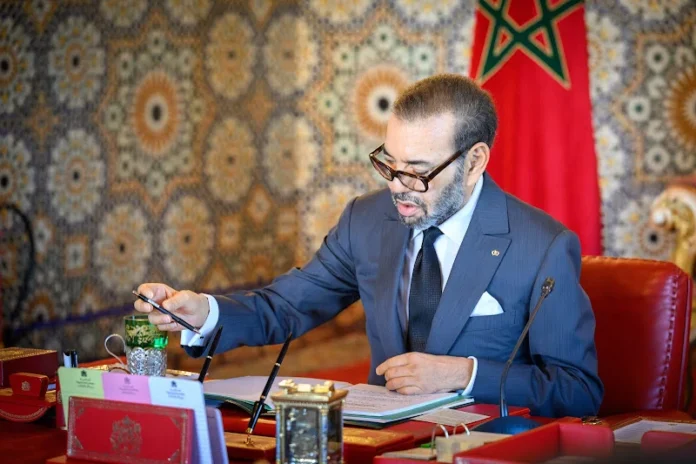The Royal Palace announced, in an official statement, new appointments at the heads of some constitutional institutions in Morocco, reaffirming King Mohammed VI’s commitment to good governance and strengthening constitutional institutions. The appointments included Abdelkader Amara as president of the Economic, Social, and Environmental Council, Mohamed Benalilou as president of the National Authority for Integrity and the Prevention of Corruption, and Hassan Tariq as Ombudsman of the Kingdom.
The announcement of these appointments made a significant impact in political and media circles, with the royal statement clarifying that the aim of these appointments was to enable these institutions to perform their role as outlined by the Constitution, thus bringing a new dynamic that will enhance their interaction with other national institutions, while supporting the major reforms taking place in Morocco.
Mustafa El-Fenn’s Reading: Invisible Political Signals?
In an article published on his Facebook page, journalist Mustafa El-Fenn approached these appointments from a critical angle, different from the official narrative. He suggests that the appointment of Abdelkader Amara to head the Economic, Social, and Environmental Council was not surprising, but rather expected within the corridors of Moroccan politics, especially in light of recent events.
El-Fenn points out that the “surprising” element of these appointments is the elevation of Amara, a former leader of the Justice and Development Party (PJD), to such a significant position, questioning the political motivations behind this decision. He notes that, although Amara is politically distanced from his former party, he has become close to current Prime Minister Aziz Akhannouch. El-Fenn believes this appointment could be part of a new approach in dealing with Islamists, particularly after the royal condolences expressed for the death of Amara’s father, which sent “political signals” suggesting the possible reintegration of some Islamists into Moroccan institutions, independent of their party affiliation.
Open Questions on Royal Appointments:
- Do the new appointments reflect a royal shift towards broadening the use of political expertise outside traditional party frameworks?
- What role will these appointments play in Morocco’s internal political balance? Are they a step toward enhancing cooperation between the current government and constitutional institutions?
- Can the political appointment of several figures to sensitive positions be considered part of a strategy to reorganize national priorities in light of economic and social challenges?
Dimensions of the Topic and Future Perspectives:
These appointments open up discussions about the future of the relationship between the monarchy and the political institutions in Morocco. While some view them as a continuation of the influence of powerful figures in certain institutions, others believe they contribute to the renewal of leadership and the strengthening of institutional independence.
These moves must be understood in the context of the broader reforms taking place in Morocco. These appointments could be part of an “alternative vision” to strengthen the stability of Moroccan institutions following the recent elections, within a strategy that balances internal political changes with regional and international challenges.
Conclusion:
Ultimately, the recent royal appointments raise many questions about the political trajectory of Morocco, but what strengthens these analyses is the central role of these institutions in establishing governance and democracy.
The coming months will reveal whether these appointments will succeed in revitalizing institutions and meeting the expectations of Moroccan citizens or whether they will remain just another attempt to employ political figures according to particular agendas.


